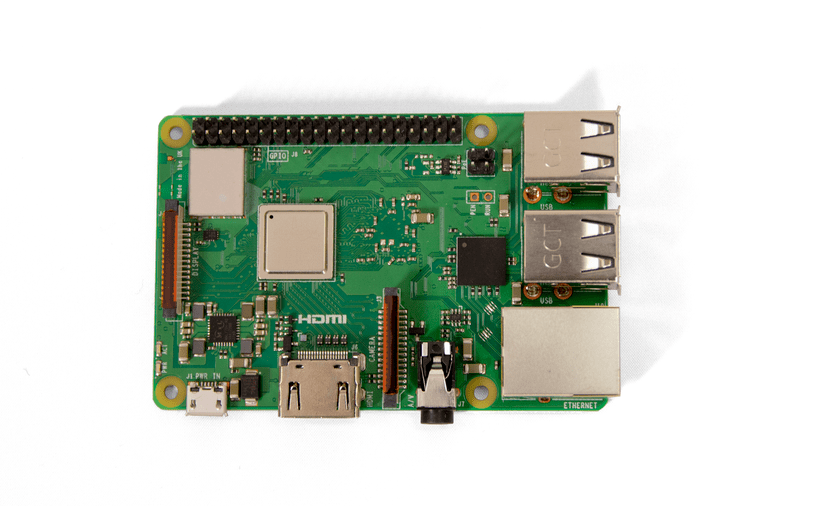Raspberry Pi Support from Simulink
Run models on Raspberry Pi
- Raspberry Pi Support from MATLAB
- Raspberry Pi Support from Simulink
- Raspberry Pi Support from MATLAB Coder
- ThingSpeak Support from Desktop MATLAB
Capabilities and Features
Simulink Support Package for Raspberry Pi™ lets you develop algorithms that run standalone on your Raspberry Pi. The support package extends Simulink with blocks to drive Raspberry Pi digital I/O and read and write data from them. After creating your Simulink model, you can simulate it and download the completed algorithm for standalone execution on the device. One particularly useful (and unique) capability offered by Simulink is the ability to tune parameters live from your Simulink model while the algorithm runs on the hardware.
The support package includes:
- Library of Simulink blocks that connect to Raspberry Pi I/O, such as audio input and output, video input and display, GPIO read and write, and ThingSpeak read and write
- Hardware setup screens to configure Raspberry Pi hardware and Wi-Fi network interface
- Customization of existing Raspbian OS images to make it compatible with the Simulink Support Package
- Data logging from sensors and signals into MAT files saved on the Raspberry Pi
- UDP and TCP/IP blocks to let your Raspberry Pi communicate with Arduino®, LEGO MINDSTORMS® EV3, and mobile devices (Android™)
- Read and write blocks to communicate with peripherals over serial and the SPI and I2C protocols (Raspberry Pi board as the Master)
- Publish and subscribe blocks for MQTT client support for machine-to-machine and IoT applications
- Blocks to read input from the Raspberry Pi Sense HAT used in Astro Pi, such as humidity, pressure, and acceleration, user input from the joystick, and a block to write to the RGB LED Matrix display
- Audio file read block to read audio files as PCM data, and multichannel support for Audio Capture and Playback blocks
- Access to audio and video algorithms through add-on products such as Audio Toolbox and Computer Vision Toolbox
- Model deployment for standalone operation
- Interactive parameter tuning and signal monitoring of applications running on Raspberry Pi
- Documentation ;that guides you on how to create a device driver block to access specific features of your hardware board
- Simulink Coder lets you access the C code generated from Simulink and trace it back to the original model.
- Embedded Coder lets you generate optimized code, use code replacement libraries, and perform software-in-the-loop and processor-in-the-loop verification.
- Examples on how to use the MATLAB Function block in Simulink models to deploy algorithms based on MATLAB code.
Learn more about Raspberry Pi programming with MATLAB and Simulink.
Supported Hardware
The following Raspberry Pi models are supported by the support package.
| Raspberry Pi Model | Simulink Releases Supported |
|---|---|
| Raspberry Pi 1 Model B (discontinued) | R2014a - Current |
| Raspberry Pi 1 Model B+ | R2014b - Current |
| Raspberry Pi 2 Model B | R2014b - Current |
| Raspberry Pi 3 Model B | R2016a - Current |
| Raspberry Pi Zero W | R2018a - Current |
| Raspberry Pi 3 Model B + | R2018b - Current |
| Raspberry Pi 4 Model B | R2020a - Current |
Note: Raspberry Pi 1 Model A, Raspberry Pi 1 Model A+, and Raspberry Pi Zero are currently not supported.
About Raspberry Pi
Raspberry Pi is a popular, low-cost, credit card sized single-board computer that supports embedded Linux operating systems, such as Raspbian. Raspberry Pi is powered by ARM® Cortex® A processors and provides peripheral connectivity for stereo audio, digital video (1080p), USB, and Ethernet – with optional camera board and sensor board add-ons.
Platform Support
See the hardware support package system requirements table for current and prior version, release, and platform availability.
View enhancements and bug fixes in release notes.


